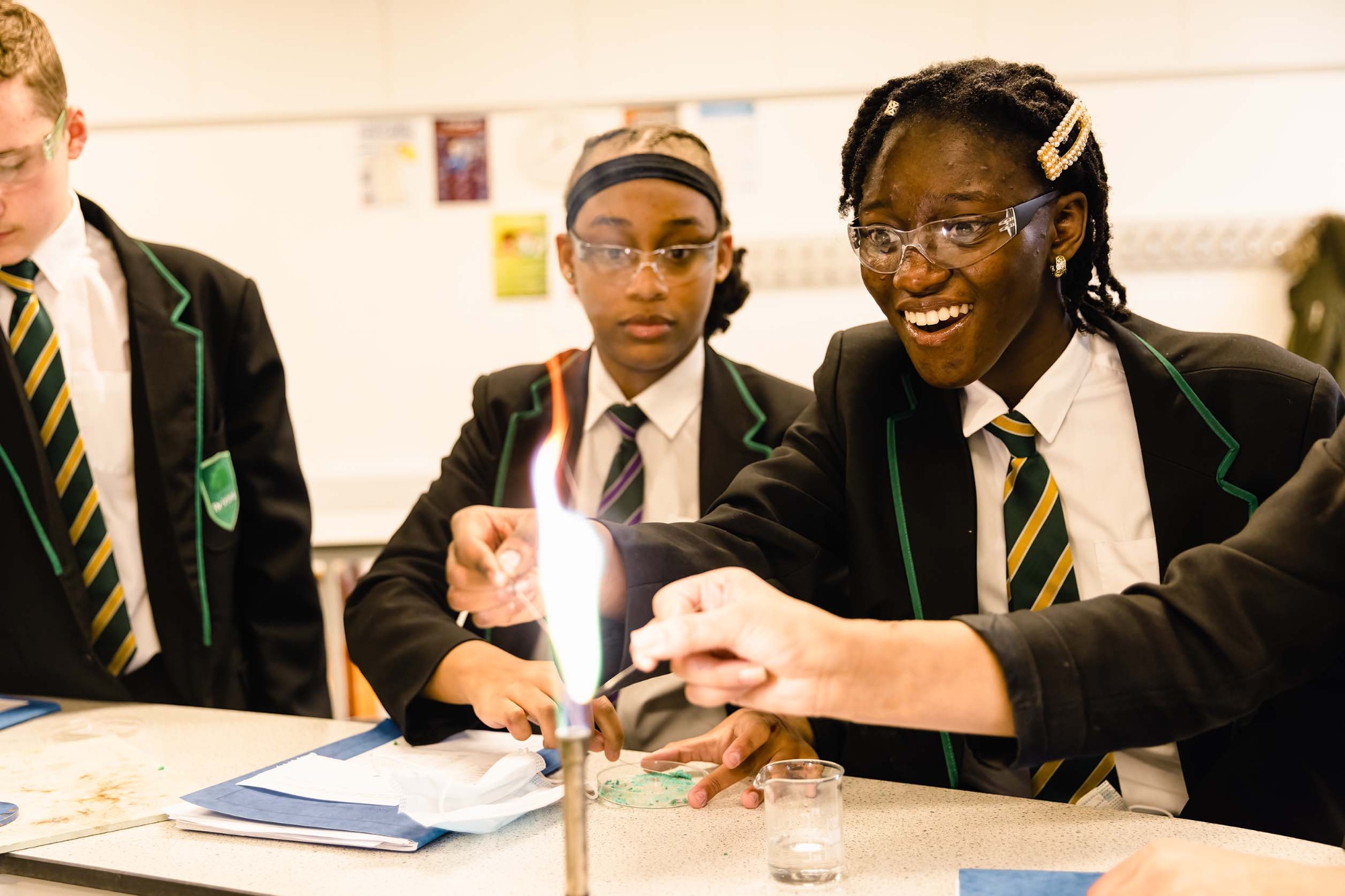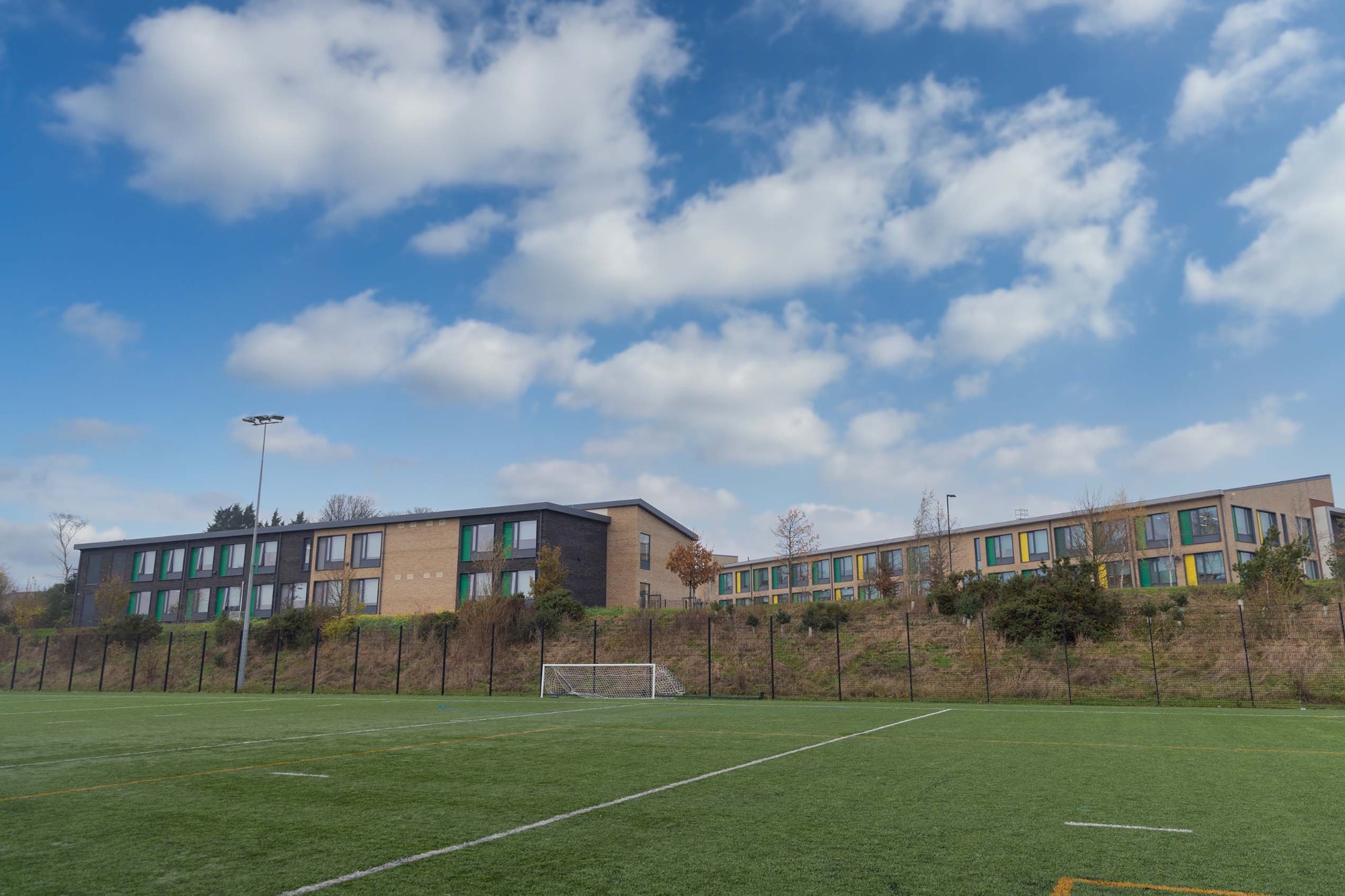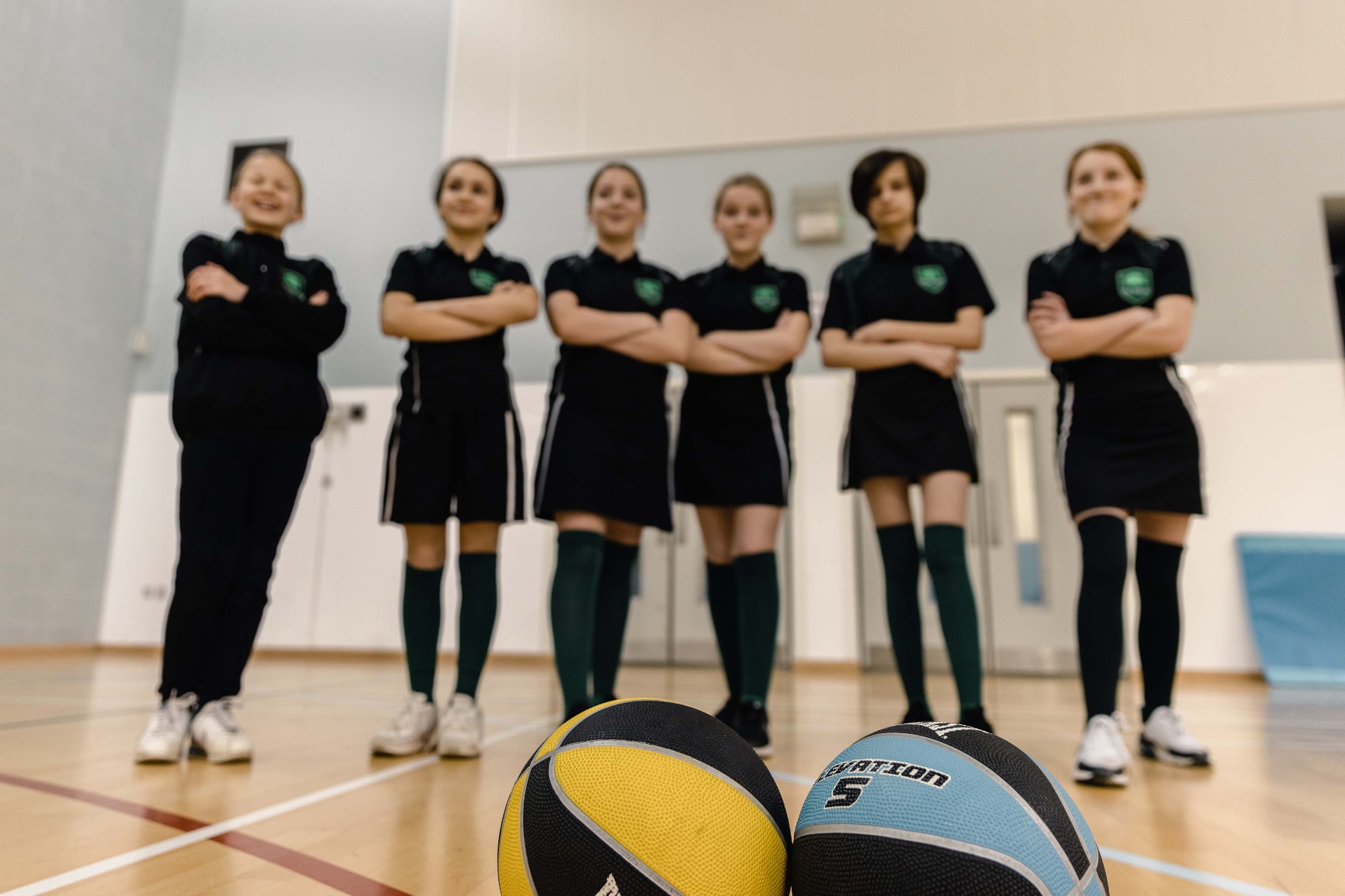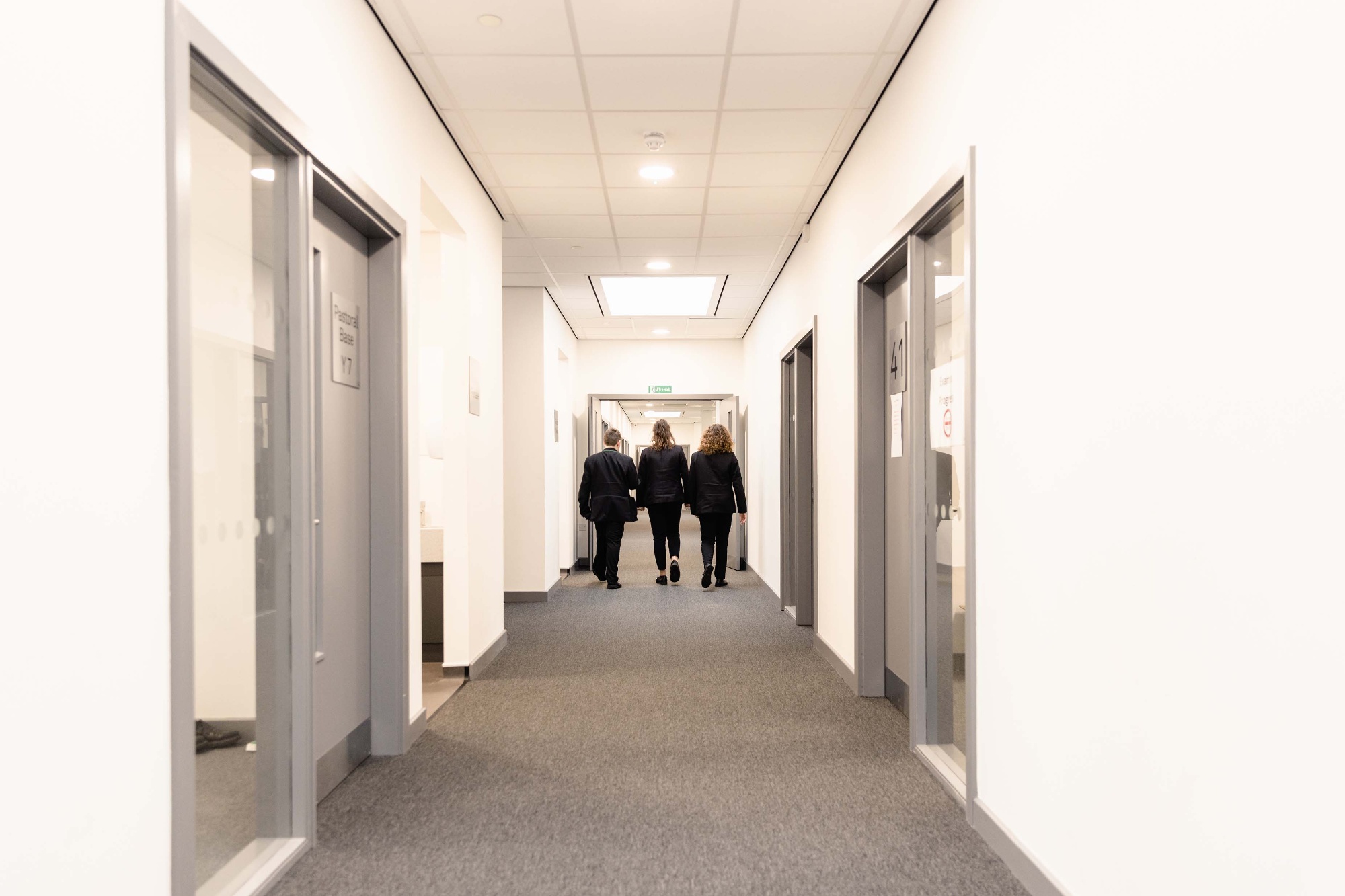.
Why do we study Religious Studies?
Religion and belief has, and continues to, shape the world in which we live. Just as Geography attempts to understand our natural world, Religious Studies attempts to make sense of the diversity of humans beliefs and practices that exist on Planet Earth.
Are we trying to teach student to be religious?
Absolutely not! Religious Studies aims to help students understand the reasons why people believe and do not believe in God. It is a subject that aims to give students the skills to analyse and evaluate fundamental questions by themselves to reach their own conclusions about ethical and philosophical issues. A wide variety of worldviews are taught including Christianity, Sikhi, Islam, atheism and humanism.
What do we study?
Students explore issues around the key themes of:
¨ Ethics (what actions and decisions are right and wrong)
¨ Philosophy (all about life’s big questions)
¨ Christianity (understanding our countries religious history and traditions, and learning key Christian beliefs)
¨ Islam (what does the world’s fastest growing religion believe and do)
¨ Sikhi (learning about Indian history and an Eastern religion)
Our approach to Religious Studies is centred around two key assessment objectives:
¨ what can we learn about religion and non-belief
¨ what can we learn from religion and non-belief
Can I withdraw my child from Religious Studies?
Any parent of a pupil has the right to remove their child from all or part of the religious education (RE) taught curriculum. You do not have to provide a reason for this. If you are considering withdrawing your child from Religious Education, we would be happy to discuss any concerns or questions you may have. This conversation can help ensure you have all the information needed to make a fully informed decision.
Are there any limitations to withdraw?
- If pupils are withdrawn from RS, schools have a duty to supervise them, though not to provide additional teaching. A pupil may be required to work in another area of the school, such as library or base.
- Whilst parents or carers have a right to withdraw children from RS, it is important to note that children may also encounter religions and beliefs and wider aspects of faith in other areas of the curriculum from which there is no right of withdrawal.
- On occasion, spontaneous questions about religious matters are raised by pupils or issues related to religion arise in other curriculum subjects such as history or in assemblies and there is no right to withdraw from this.
I am thinking of withdrawing my child from Religious Education, how do I this?
Please contact michael.oxenham@taw.org.uk and inform the curriculum leader for this subject area of your intention.
Year 7
During their time in RS students will have a focus religion of Christianity. They will start by being introduced to the six main world religion and some basic information about them. They will learn about the two main groups: the Dharmic and Abrahamic religions. We will also discuss why someone might or might not believe in God and the key terms associated with this.
After this brief introduction to the concept of religion we will begin to look at Christianity. This has been chosen as a focus religion for Year 7 as it’s the primary religion of the UK and is a religion that most students are likely to have some prior knowledge of. Also, it links with the History topics of Medieval and Tudor England.
Students will look at the foundations of Christianity, its beginnings and main ideas, such as the concept of the Holy Trinity. Later, they will look at the Ten Commandments and the use of parables. We will also look at prayer and important celebrations.
At the end of the rotation, we will look at the concept of life and death – examining ideas of the soul and afterlife, how religion play a part in life events, as well as discussing our roles of this planet in terms of stewardship and looking after the world.
Year 8
In Year 8 students will have a focus religion of Sikhism. This has been chosen as it is a religion which is represented in our school and local area. It is also an example of a Dharmic religion, different from Abrahamic religions such as Christianity.
Students will begin by learning about the founder of Sikhism Guru Nanak. They will look at his background and some of his main teachings. Following on from this they will then look at the Guru Granth Sahib and why it is such an important text.
Next, we will discuss what Sikh beliefs are about God. We will look at how they are similar or different from other religions and how these beliefs influence the lives of Sikhs. After this we will look at the creation of the Khalsa and the 5Ks. We will finish by looking at Sikh contributions to the UK and important celebrations.
At the end of the rotation, we will look at the concept of interaction – examining how religion and life interact with each other. We will look at religion’s influence on music and the arts.
year 9
In Year 9 students will have a focus religion of Islam. This has been chosen as it is a religion which is represented in our school and local area. It is also an Abrahamic religion and will provide a contrast to Christianity, which shares similar roots.
Students will begin by learning about the foundations of Islam and the life of its founder. We will then look at Muslim beliefs about God, the nature of Allah and the 99 names of Allah which Muslims learn.
Students will have an introduction to the Five Pillars of Islam before focussing in on looking at some of them individually. We will examine the use of prayer, fasting and religious journeys and the reason for their importance to Muslims.
In the second half of the rotation, we will look at the idea of debate and controversy. We will look at different points of view about the creation of the universe, whether religion is a useful concept and what the existence of evil means in terms of God. We will also cover: euthanasia, drug use, war, terrorism and money.
year 10
Autumn Term – Religion, Crime and Punishment
In the Autumn term students will looking at the topic of Religion, Crime and Punishment. There are no focus religions in KS4 as we will look at the views of all the six main world religions during each topic.
We will begin by looking at the causes of crime, what makes a person commit a crime, how their background may influence them. Students will then have an overview of the British legal system and how crimes are categorised. Following on from this we will look at punishments and what the aims of punishment should be. We will look at this from a religious and non-religious background.
Students will look at various punishments, including those for young offenders, prison and capital punishment. For each one we will look at the advantages and disadvantages and religious views on their use.
Spring Term – Religion and Morality
In the Spring term students will be looking at the topic of Religion and Morality. We will begin by defining the term ‘morality’ and knowing that morality can be relative or absolute. Students will then look at a range of issues, examining them in terms of morality from a religious and non-religious point of view.
Firstly, students will look at fertility treatments, how they work and rules surrounding their use. Students will discuss whether they should be used and what religions think about their use. We will then move on to looking at transplant surgery and blood transfusions, thinking about their use (including modern alternatives involving transplanting animal body parts into humans).
We will finish off the unit by looking at human genetic engineering, embryology and cloning. We will consider whether new advances in science and medicine should be used.
Summer Term – Religion and Relationships
In the Summer term students will be looking at the topic of Religion and Relationships. We will begin by looking at religious and non-religious views on sex before marriage and the use of contraception.
After this we will look at views on marriage and the symbolism used in religious weddings. We will also look at religious and non-religious views on parenting, sex outside of marriage and divorce.
year 11
Autumn Term – Religion and Multiculturalism
In the Autumn term students will looking at the topic of Religion and Multiculturalism. There are no focus religions in KS4 as we will look at the views of all the six main world religions during each topic.
We will begin by looking at what is meant by ‘multiculturalism’ and how this is reflected in the UK. Alongside this, students will also think about the advantages and disadvantages of living a multicultural society.
After this we will look at whether religion and politics mix and whether the UK political system represents the diversity which is in the UK. Linked in with this, students will also look at what is meant by the term ‘state religion’ and how this influences the UK.
We will finish this topic by discussing immigration and asylum seekers, faith communities and celebrations.
Spring Term – Religion and Work
In the Spring term students will be looking at the topic of Religion and Work. We will begin by looking at the purpose and importance of work, thinking about what religions say about work.
We will then move on to look at the economy and taxation. Students will look at how the UK’s tax system works and discussing what religions say about tax. We will also look at rights and responsibilities for employers and employees and the role of trade unions.
We will finish the topic by discussing religious views on voluntary work and unemployment.
M Oxenham, Director of Learning





